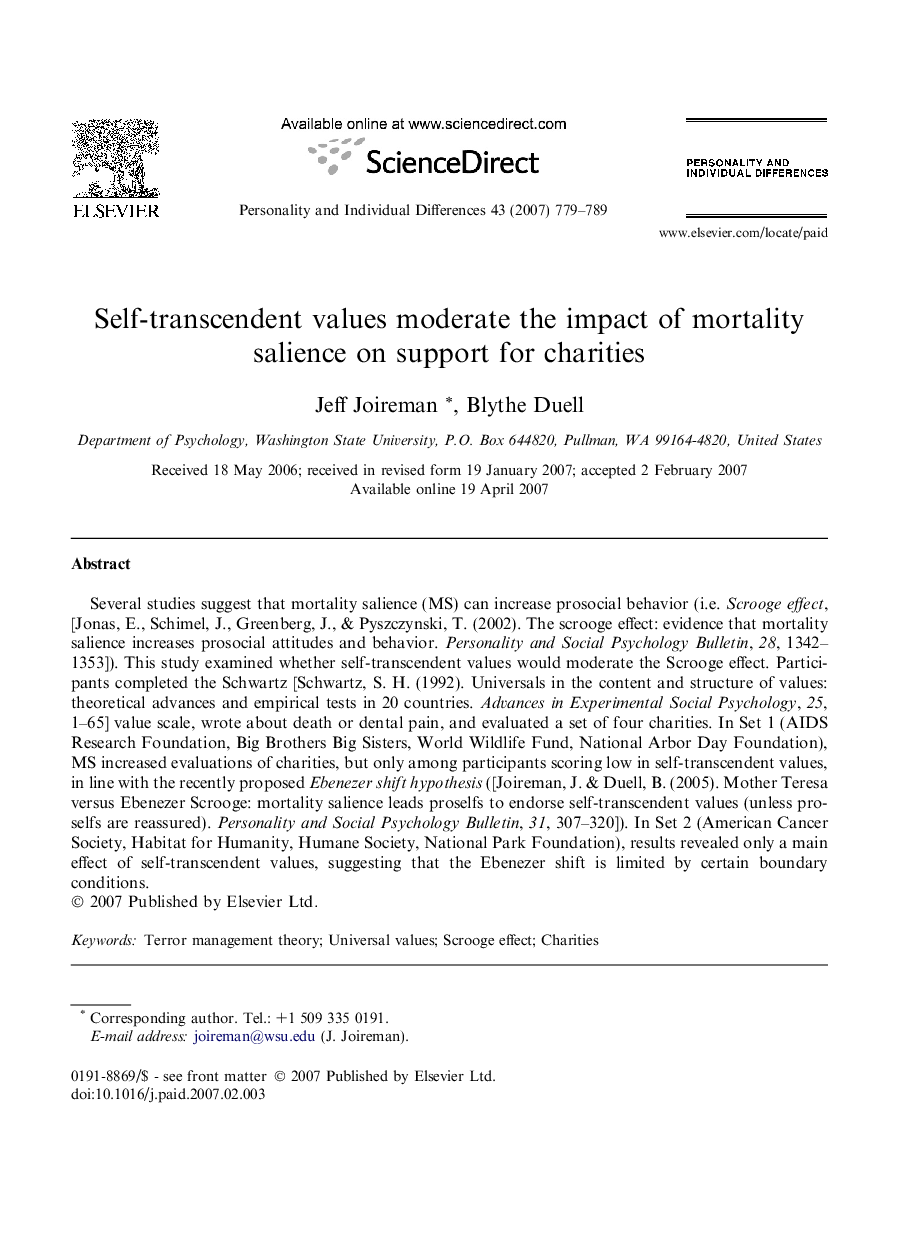| Article ID | Journal | Published Year | Pages | File Type |
|---|---|---|---|---|
| 893003 | Personality and Individual Differences | 2007 | 11 Pages |
Several studies suggest that mortality salience (MS) can increase prosocial behavior (i.e. Scrooge effect, [Jonas, E., Schimel, J., Greenberg, J., & Pyszczynski, T. (2002). The scrooge effect: evidence that mortality salience increases prosocial attitudes and behavior. Personality and Social Psychology Bulletin, 28, 1342–1353]). This study examined whether self-transcendent values would moderate the Scrooge effect. Participants completed the Schwartz [Schwartz, S. H. (1992). Universals in the content and structure of values: theoretical advances and empirical tests in 20 countries. Advances in Experimental Social Psychology, 25, 1–65] value scale, wrote about death or dental pain, and evaluated a set of four charities. In Set 1 (AIDS Research Foundation, Big Brothers Big Sisters, World Wildlife Fund, National Arbor Day Foundation), MS increased evaluations of charities, but only among participants scoring low in self-transcendent values, in line with the recently proposed Ebenezer shift hypothesis ([Joireman, J. & Duell, B. (2005). Mother Teresa versus Ebenezer Scrooge: mortality salience leads proselfs to endorse self-transcendent values (unless proselfs are reassured). Personality and Social Psychology Bulletin, 31, 307–320]). In Set 2 (American Cancer Society, Habitat for Humanity, Humane Society, National Park Foundation), results revealed only a main effect of self-transcendent values, suggesting that the Ebenezer shift is limited by certain boundary conditions.
